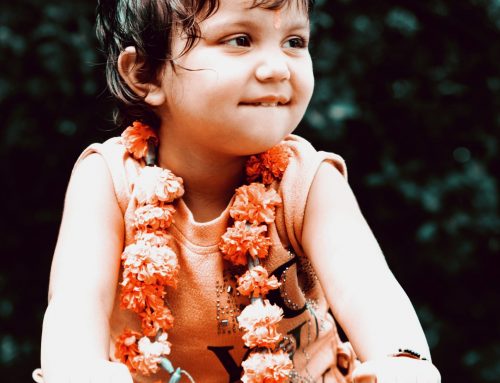At age one, my son was on track. Each developmental milestone had been diligently reached on time. When his cousin, who was three months older, started speaking fluently at two years, I waited with bated breath, for my son’s first complete sentences. I had to take a deeper breath. Because till age 3, he spoke only in one-word sentences, like ‘water’ or ‘chocolate’. He also had trouble making eye contact. Didn’t follow instructions either. Something about him seemed… off.
So on the advice of my paediatrician, I took him to a specialist. Well, I took him to several. The first one said he was fine, just a late developer. The second doctor insisted he was on the autism spectrum. The third specialist said that while he seemed fine, they would need more tests. This went on for months. It felt like a never-ending revolving door of doctors. The medical fraternity was divided on the status of my son. And I was at my wit’s end. Luckily, by the time my son was four and a half years old, a bulb went off in his brain. He caught up with all his peers in speech, action and behaviour. Our worries were put to rest. But one question lingered. When your child exhibits symptoms of autism, why is it so hard to stick to a diagnosis?
The many shades of autism
As concerned parents, we’re always on the lookout for anything ‘abnormal’ or ‘different’ in our kids. When a child refuses to answer to his name, doesn’t make eye contact or has trouble with verbal communication… it could be something more serious. When developing milestones are delayed, the panic sets in. After routine check-ups, the doctors may dismiss your concerns, or they might suspect autism spectrum disorder.
Then comes the tricky part. How does one check for this disorder? There is no physical or medical test where you can take a sample, run the numbers and receive a definite conclusion. Autism is detected purely through the doctor’s observations of the child, along with a more in-depth inquiry into the child’s behavioural history along with social and communicative abilities.
When I took my child to see the doctors, they analysed his responses to the environment around him. They gave him a series of playful activities and noted down his reactions. So why did some doctors declare him as autistic, while others didn’t? Because it was a ‘subjective’ diagnosis. According to the number of symptoms, a child is placed on the spectrum. My son ticked on six to seven symptoms out of the many. But those symptoms could have had other reasons behind their existence.
Autism spectrum disorder (ASD)
ASD affects parts of the brain that control cognitive, social and emotional development. These are first noticeable when a baby, toddler or child exhibit different behavioural traits that result in delayed milestones. In some cases, physical development could also get affected.
The disorder can be mild and manageable. Or, might need intensive medical intervention. The children, according to the severity of the syndrome, are placed across a broad Autism spectrum. Doctors recommended looking for early signs of autism in infants, as the sooner you start treatment, the better. It’s a tough disorder to diagnose accurately, though. Many of the symptoms could have multiple reasons and may not be related to autism. So make sure you go to the highly-reputed professionals and don’t hesitate to take a second or third opinion.
Take this online quiz to know more.
Autism symptoms checklist
The most common symptoms include a child who:
- Avoids making eye contact, even when speaking or spoken to
- Plays alone doesn’t interact with other kids
- Doesn’t like bright lights, sudden movements or hugging
- Doesn’t make appropriate emotional reactions or understand emotions
- Doesn’t answer when called by name
- Doesn’t like physical contact
- Constantly indulges in repetitive behaviour like flapping arms or banging the head
Click here for a list of symptoms.
How does a child get autism?
Doctors and medical experts haven’t been able to figure out the exact reason for why some children get ASD. However, they have managed to link it to genetics, while noting that boys tend to have autism more than girls. If someone in the family has autism, there are high chances of the disorder showing up in later generations. There is also no known way to ensure prevention of autism spectrum disorder. A safe and healthy pregnancy can help reduce your chances. Avoid being in the presence of chemicals, don’t drink alcohol or take unprescribed medication.
Parents need to understand and acknowledge that vaccinations of any kind do not cause autism. A while back, many parents in America chose to become anti-vaxxers as they were convinced vaccines triggered autism in many children. This has been refuted in many studies.
The rise and acknowledgement of autism in India
According to recent studies, one out of a hundred children in India is on the autistic spectrum. That is a high number for a country with such a large population. This figure also makes us the country with the highest rate of ASD. However, we don’t have the required resources to address these numbers.
It also doesn’t help how society views this disorder, which is why it’s essential to de-stigmatise this disorder. More people, especially a father or a mother of an autistic child, need to be aware and educate themselves about autism, especially given how difficult an accurate diagnosis can be.
Early detection is key to helping an autistic child adjust to his environment and cope with any learning difficulties.
List of some known institutes/organisations across India that help children on the Autistic spectrum:
- Centre for Autism India
Tiruvalla, Kerala
The organisation runs carefully-constructed programmes that enable children and adults with autism to lead empowered lives. They have speech, physical and occupational therapy, along with formal education. The centre also conducts tests for autism in rural environments, in the hopes of early detection. - Ummeed
Mumbai, Maharashtra
Here, a team of professionals work together to provide therapy for autistic children. They have an early detection centre where children are diagnosed at a young age. They then come up with what they call an ‘individualised family service plan’, which helps parents and the autistic child to learn strategies and skills that will enable them for life. - Ananya
Hyderabad, Telangana
This institute uses a combination of treatments like occupational therapy, speech therapy and sensory integration to teach autistic children better-coping skills. The website offers online treatment, as well. - Assam Autism Foundation
Guwahati, Assam
As the first autism organisation in the North East, the AAF attempts to break the stigma around autism by educating society through publications, seminars and workshops. They also work with autistic children on a one-on-one basis before introducing them to group learning. - SNM Rehabilitation Autism Research Centre
Jaipur, Rajasthan
The first one in Rajasthan, this centre offers a range of services that include a special school for autistic children, early detection facilities and sensory integration therapy. - Action For Autism
Delhi
This centre offers educational programs, treatment therapies and early assessment tests for autistic children. They also advocate for the rights of autistic patients, while attempting to remove the stigma attached to the disorder and creating awareness. The website has in-depth information about ASD that is clear and easy to understand. - NIMHANS
Bengaluru
The National Institute of Mental Health and Neurosciences is India’s leading organisation on a variety of neurological development issues. They have several departments, research centres and even training facilities dedicated towards helping patients across India. They also offer invaluable support for children with autism spectrum disorder. - Nayi Disha
Hyderabad, Telangana
The website offers information resources for intellectual and developmental disabilities across the country. You can find ASD-related centres, informative articles and even parent-based support communities in your own city or town.
Also, check out these online parenting support groups for ASD:
- Autism Spectrum Disorder (India)
- Autism India Parents Support Group
- Autism, ADHD and Intellectual Disability – Support Group, India
A special mention to Suja Pisharody’s blog ‘A Mom’s Tryst With Autism’ for beautifully articulating what it means to be a mother of a child with ASD.
Conclusion
While autism is not a life-threatening disease, it can affect the quality of your child’s life.
To parents of an autistic child, the challenges ahead might appear overwhelming. But with early detection, proper therapy along with a positive attitude, you can help your child successfully navigate through his life journey.






The article is very helpful
Thank you Shweta 🙂
Very well written ..your blog always arriveS on time to address any ongoing concerns that I have about my kids..be it the article on screen time or the one on ASD
Thank you Reshmi. I hope Anu Chi Aai continues to help you in your parenting journey.
This topic is very close to my heart. What I really liked about this article is the crisp manner in which information is provided. Anyone reading about ASD for the first time would get a basic understanding. Keep up the good work
Very Well articulated Anu ! As an Autism mom this is a subject very close to my heart & I truly hope we develop more awareness about this & are able to lose the stigma surrounding it.
A big thank you for liking & mentioning my blog ‘A Mom’s Tryst With Autism’ ?